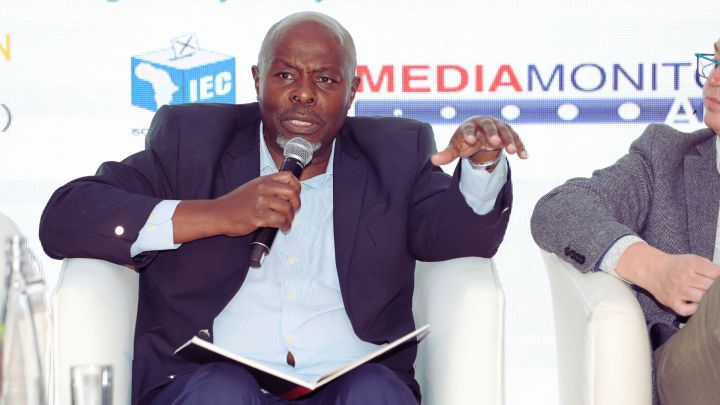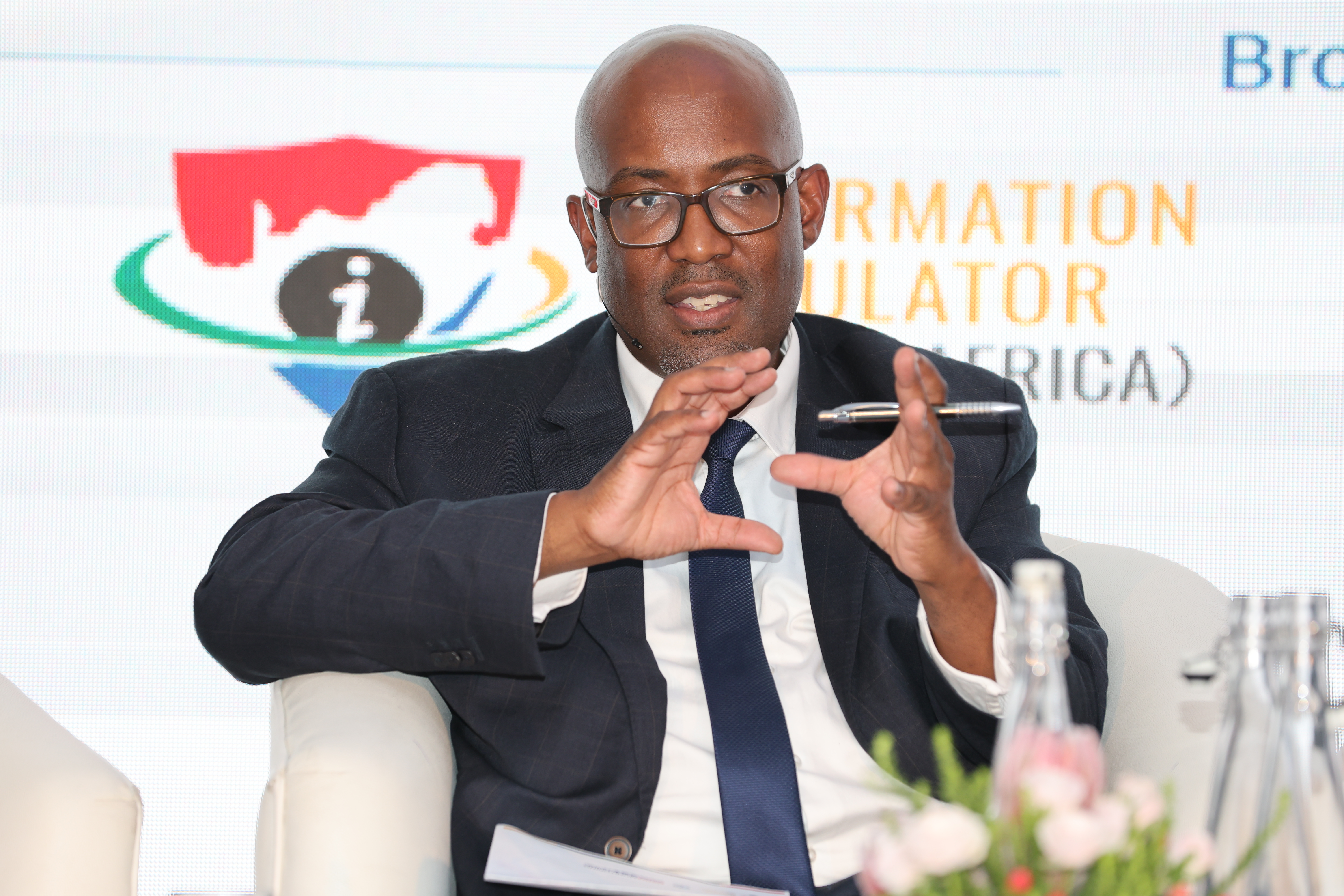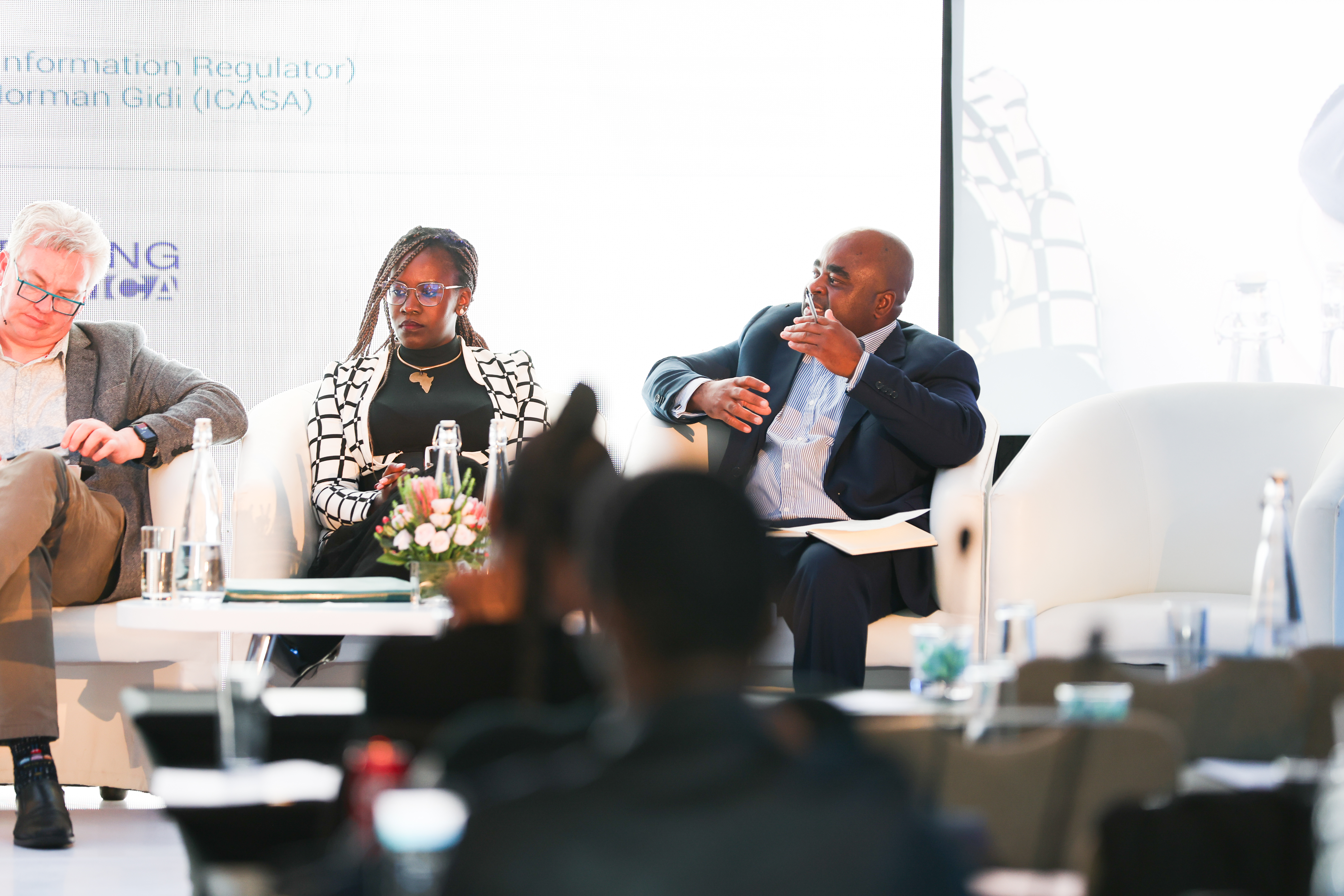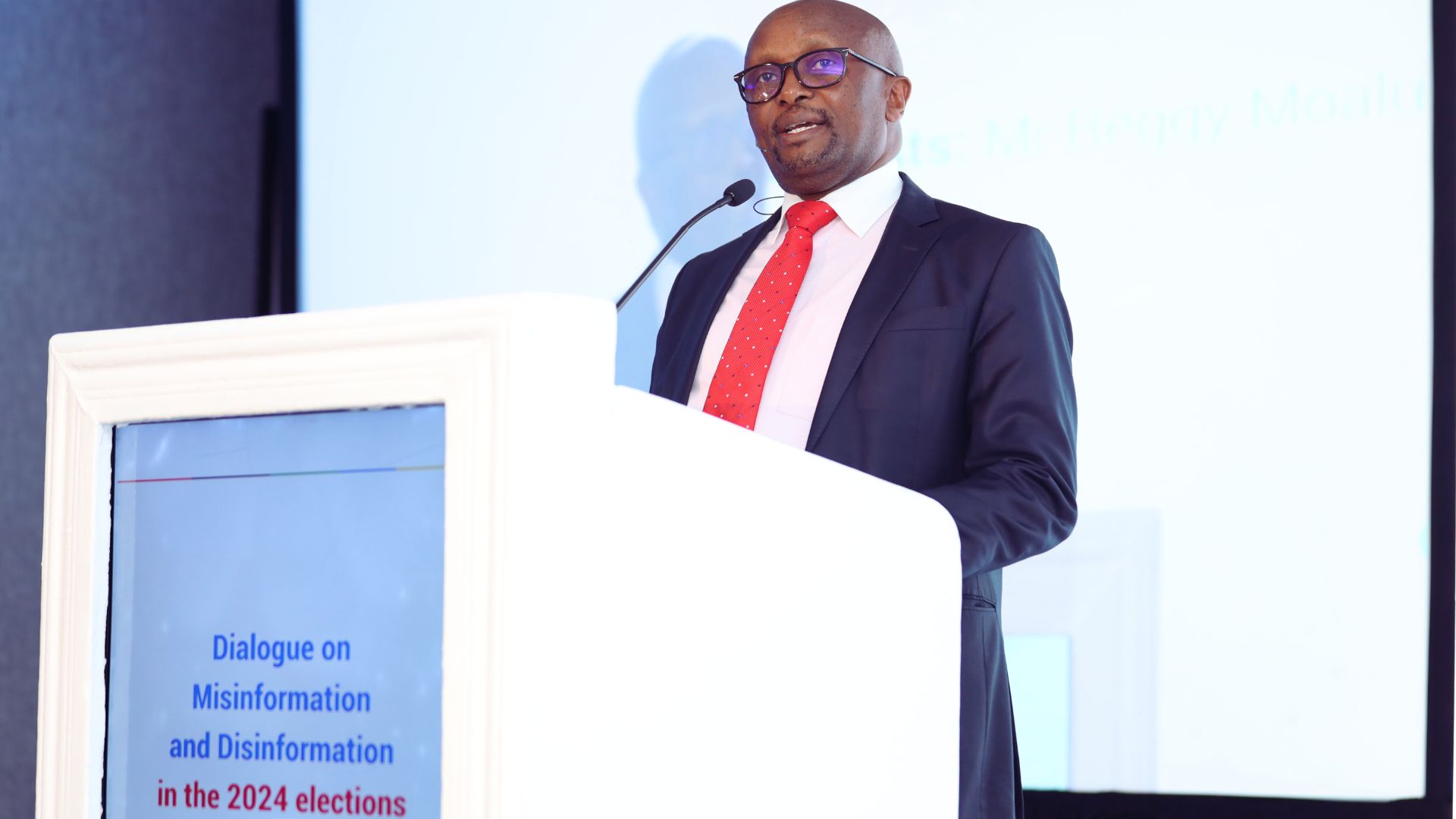ROAD TO 2024 ELECTIONS
Combating mis- and disinformation must take a human rights approach, civil society urges

‘Every citizen has a right to free, fair and regular elections. But this is threatened by misinformation and disinformation,’ says Norman Gidi, research and policy analyst at the Independent Communications Authority of South Africa.
As D-Day for millions of South Africans heading to the 29 May polls draws nearer, civil society, government representatives and members of several political parties filled a room at the Radisson Blu in Sandton to discuss one of the most pressing threats to the election: Disinformation and misinformation.
The event, hosted on Monday, 8 April 2024 by the Electoral Commission of South Africa (IEC), the Information Regulator (IR) and Media Monitoring Africa (MMA), aimed to unpack the impact of mis- and disinformation in the electoral process and examine how civil society, the government and the media can curb the phenomenon during the elections.
“I stand before you today with a sense of urgency and responsibility. Our democratic process is under threat, not from external forces, but from within our own society. The dangers of disinformation and misinformation loom large, casting a shadow over the integrity of our electoral process and the very foundations of our democracy,” IEC chairperson Mosotho Moepya said in the keynote address.
IEC electoral manager Mawethu Mosery said the unprecedented number of political parties and independent candidates contesting the elections makes widespread disinformation highly likely.
“There are about 55 unique contestants in this election – political parties. The number of candidates that have been nominated to stand for office is about 14,900, including the 12 independent candidates. The cherry on top of this is that the actual number of seats that are being contested by these candidates is 887; 14,000 people are bound to be disappointed. So, what makes them act responsibly if they already think they will lose this election?” Mosery said.

Mukelani Dimba, executive for education and communication at the Information Regulator, revealed how none of the 13 parties in Parliament is fully compliant with PAIA. (Image: Supplied)

Media Monitoring Africa director William Bird said no one law is effective enough to stop mis- and disinformation and that the only way such a law can be effective is to kill the freedom of expression. (Image: Supplied)
Fighting misinformation and promoting human rights
Speaking as part of the panel on government and civil society efforts to curb mis- and disinformation in this election period, Marystella Simiyu from the Centre for Human Rights at the University of Pretoria urged that while South Africa looks to legislation to mitigate mis- and disinformation, the judiciary and the government need to ensure the laws passed are anchored in human rights.
“We are talking about issues of disinformation and misinformation and the intersection with human rights, freedom of expression and the right to access information. We need to ensure that in coming up with interventions, these rights are not being violated or threatened,” Simiyu said.
Read more in Daily Maverick: Elections 2024
Simiyu added that, to a large extent, laws implemented in sub-Saharan Africa to regulate mis- and disinformation online tend to violate freedom of expression.
“From our research, there is no single country in sub-Saharan Africa that passed the test. When you look at laws and regulations as an intervention for issues of dis- and misinformation, you see African countries fail miserably. While the laws might be enacted to curb disinformation, what we see in a lot of African countries is that these laws become weaponised. We see a rise in totalitarianism, where laws are being used to silence certain critical voices,” she said.

Norman Gidi spoke about how Icasa uses the BCCSA and the Electronic Communications Act to keep political parties in line during the election season. (Image: Supplied)
Simiyu added that the Centre for Human Rights had yet to find evidence that the criminalisation of mis- and disinformation effectively deals with the problem.
Read more in Daily Maverick: Explainer: How the IEC will fight disinformation and keep errant parties in line during polls
Simiyu said a rights-based approach involves examining issues of civic and voter education and boosting media literacy. She added that ensuring the proactive disclosure of information leans more toward promoting a rights-based approach to dealing with the issue than more restrictive approaches.
According to Simiyu, South Africa’s Electoral Act is questionable because, among other penalties for disseminating mis- and disinformation during the election season, it imposes a six-month jail sentence for the offence.
No silver bullet
Media Monitoring Africa director William Bird said that dealing with disinformation is a highly complex and nuanced issue and one single law cannot effectively stop it.
“We can only mitigate and minimise the impact of misinformation. Firstly, the speed and effectiveness with which these things occur are something that no law can do anything about. This means that the only way that a law becomes effective is to kill freedom of expression to the extent that people are scared to say anything negative in case they get thrown in jail. And that’s not South Africa; we won’t tolerate that kind of approach.

IEC chairperson Mosotho Moepya said mis- and disinformation have the power to sow seeds of doubt, breed distrust and foster division among citizens, threatening the fabric of our society. (Image: Supplied)
“[With] every step forward we take, the dark horses take another few steps forward, and we have to find better ways of dealing with that,” Bird added.
Read more in Daily Maverick: Africa the target of a surging disinformation tsunami, mainly generated by Russia
Bird recommended that fighting misinformation must focus on building the credibility of public institutions and news organisations so the public looks to them for information. He also suggested financially disincentivising disinformation because a lot of individuals are making money from spreading false information.
In tandem with acknowledging the real threats to democracy and the coming elections, Bird pointed out that South Africa is fortunate to have institutions such as the Information Regulator and the IEC which can oversee the polls and ensure they are free, fair and credible despite being underfunded by the government. DM

















Information: ANC is corrupt and incompetent and is killing our country for all who live in it.
Disinformation: DA is a racist party. [The DA is not racist. Unlike the ANC and the EFF]
Enough lies. Enough stealing. Enough corruption. Enough!
Let’s vote for a country we can all succeed in and be proud of. Let’s vote for an opposition party that has already proven it can give it to us. Let’s vote DA.